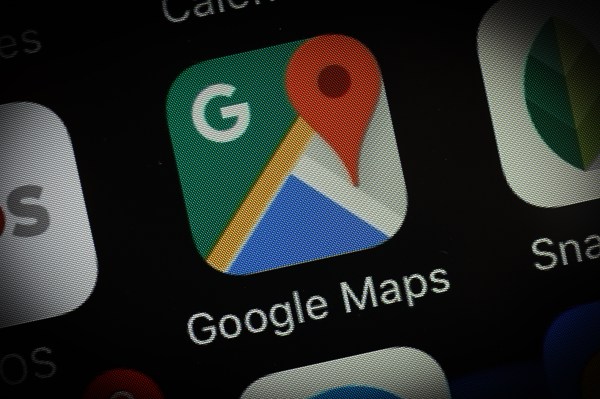Google Maps unveils improved bike navigation, location sharing and aerial landmark views – TechCrunch

To get a roundup of TechCrunch’s biggest and most important stories delivered to your inbox every day at 3 p.m. PDT, subscribe here.
Hello, Daily Crunchers!
Personal story time: I came to the U.S. on an IR1 visa — also known as a “green card” — after having been married to an American for more than two years. I then became a naturalized citizen a little while back. There’s a tremendous amount of luck and privilege with my path to U.S. citizenship, and many have a much harder time settling in this fair country.
I’m so grateful for the TechCrunch team and our great relationship with Sophie Alcorn, our friendly immigration lawyer. She runs a great column on TechCrunch with tons of immigration advice, and tomorrow Walter is doing a Twitter Spaces Q&A with her. Set yourself a reminder and tune in tomorrow at 12 p.m. PT/ 3 p.m. ET, on @TechCrunch.
With much multicultural and international love, Haje
The TechCrunch Top 3
- Taking a look at India’s streets: Google Street View made its debut more than a decade ago. Six years ago, India banned the service over security concerns. Jagmeet and Manish report that the tech company today relaunched Street View in India. It expects to roll out the service to 50 Indian cities by the end of the year.
- $52 billion for U.S. onshoring chip production: One surefire way to make something happen is financial incentives, and Brian reports how the U.S. Senate just threw $52 billion at the semiconductor industry for companies to manufacture computer chips on U.S. soil again, by way of the CHIPS Act.
- The little three-wheeled prototype that could: I took the Nimbus three-wheeled urban transportation pod for a spin last week, and found myself getting excited and confused in equal measure. I want it to exist, but at the same time, I’m struggling to imagine the vehicle finding a market, when its $10,000 price tag buys a lot of other cool transportation options.
Startups and VC
As regulation, platform dynamics and consumer choice continue to eat into cookies, it’s leaving a gap in the market for advertising solutions that can work well without relying on cookie functionality. Today, Ingrid reports that Seedtag, an adtech startup based in Spain, is doing just that. It has raised a $250 million round of funding to double down on the opportunity.
Annie reports how internet use in most of Africa remains low despite the growing broadband internet coverage. A recent report surveyed most of the countries in the world, and shows half of the top 10 most expensive countries to buy mobile data in the world are in Sub-Saharan Africa, which may be hindering investor activity and startup opportunity in the region.
More startup magic:
- Finding your (medical) flow state: Pregnancy tests did it first; then we were all sticking cotton buds up our nose to see if we were pregnant with COVID-19. The era of at-home health diagnostics is here, and Senzo wants to bring a bunch of new at-home rapid tests to market.
- Paragon gets SaaSier: Paragon, a startup building a platform that integrates and aggregates various software-as-a-service (SaaS) apps, wants to be the Plaid of enterprise SaaS. It raised $13 million to get there, Kyle reports.
- Get off my urban lawn: Scooters on sidewalks is bad news for pedestrians. Drover AI raised a $5.4 million round to use computer vision to keep scooter riders off sidewalks, reports Rebecca.
- Coffee is for closers: Shypyard is a startup developing business planning products and services for brands and direct-to-consumer merchants. It aims to “raise the sales” for DTC merchants, and closed $3 million in seed funding, Christine writes.
- The sun even shines on a car’s roof some days: This week, Sono Motors unveiled the final production design of the Sion EV, a solar electric vehicle that’s been in the making since the Munich-based startup launched in 2016, Rebecca reports.
8 fintech investors discuss the shifting investing landscape and how to pitch them in Q3 2022

Image Credits: James Osmond / Getty Images
What are fintech investors willing to bet on in this climate?
To get a sense of how their viewpoints and strategy have changed in recent months, Mary Ann Acevedo asked eight of them about the advice they’re offering portfolio companies, how they expect the next few quarters to unfold and their pitch preferences:
- Paul Stamas, managing partner and co-head of financial services, General Atlantic
- Alda Leu Dennis, general partner, Initialized Capital
- Michael Gilroy, general partner and co-head of fintech, Coatue
- Justin Overdorff, partner, Lightspeed Venture Partners
- Addie Lerner, founder and managing partner, Avid Ventures
- David Jegen, managing partner, F-Prime Capital
- Nik Milanovic, general partner, the Fintech Fund
- Jay Ganatra, co-founder and managing partner, Infinity Ventures
(TechCrunch+ is our membership program, which helps founders and startup teams get ahead. You can sign up here.)
Big Tech Inc.
Our top Big Tech story for the day — and the subject of our Daily Crunch newsletter today — is brought to us by Ivan. Google is increasing its bid for being the first place people go for discovery and planning pastimes. In aid of that, today the company announced three new features for its star navigation app, Google Maps: aerial and more immersive views of 100 landmarks, more detailed cycling routes, and improved location sharing with notifications for the arrival and departure of your friends.
Ax Sharma makes his TechCrunch debut as a contributor today, delving into how some open source projects effectively sabotage their own software, as a form of protest. “Did it make an impact? We’ll probably never know,” said one of the developers. “That being said, I think it was completely worth the chance to disseminate information and hopefully catch the eye of software folks in Russia that might not have seen what was happening otherwise.”
And a few more to keep your mind nimble:
- Blink and you’ll miss it: Netflix released its July slate of mobile games yesterday, adding a range of new titles. “Before Your Eyes” uses eye-tracking technology that progresses the story every time the camera detects that you’re blinking, Lauren reports.
- Who watches the watchers: TikTok will provide select researchers with more transparency about its platform and moderation system. The company says researchers currently don’t have an easy way to assess content or conduct tests on its platform, and it plans to make the API access available to select researchers later this year, Aisha reports.
- Running up those charts: Spotify said that streams of Kate Bush’s 1985 single “Running Up That Hill” jumped 9,000% after the song was featured prominently in a new episode of Netflix’s “Stranger Things” and went crazy viral on TikTok, Amanda reports.
- Car no-thing: We barely knew ya, Car Thing: Spotify gives up on Car Thing hardware play, reports Ingrid.
- Intro: Roberto Baldwin takes a deeper look at the Zoox robotaxi design, complete with its cool carbon fiber hull, sensor suite and battery tech. “Zoox wouldn’t share projected range numbers but did say that the goal is to keep the vehicle in service for at least 16 hours.”
Credit: Source link


Comments are closed.